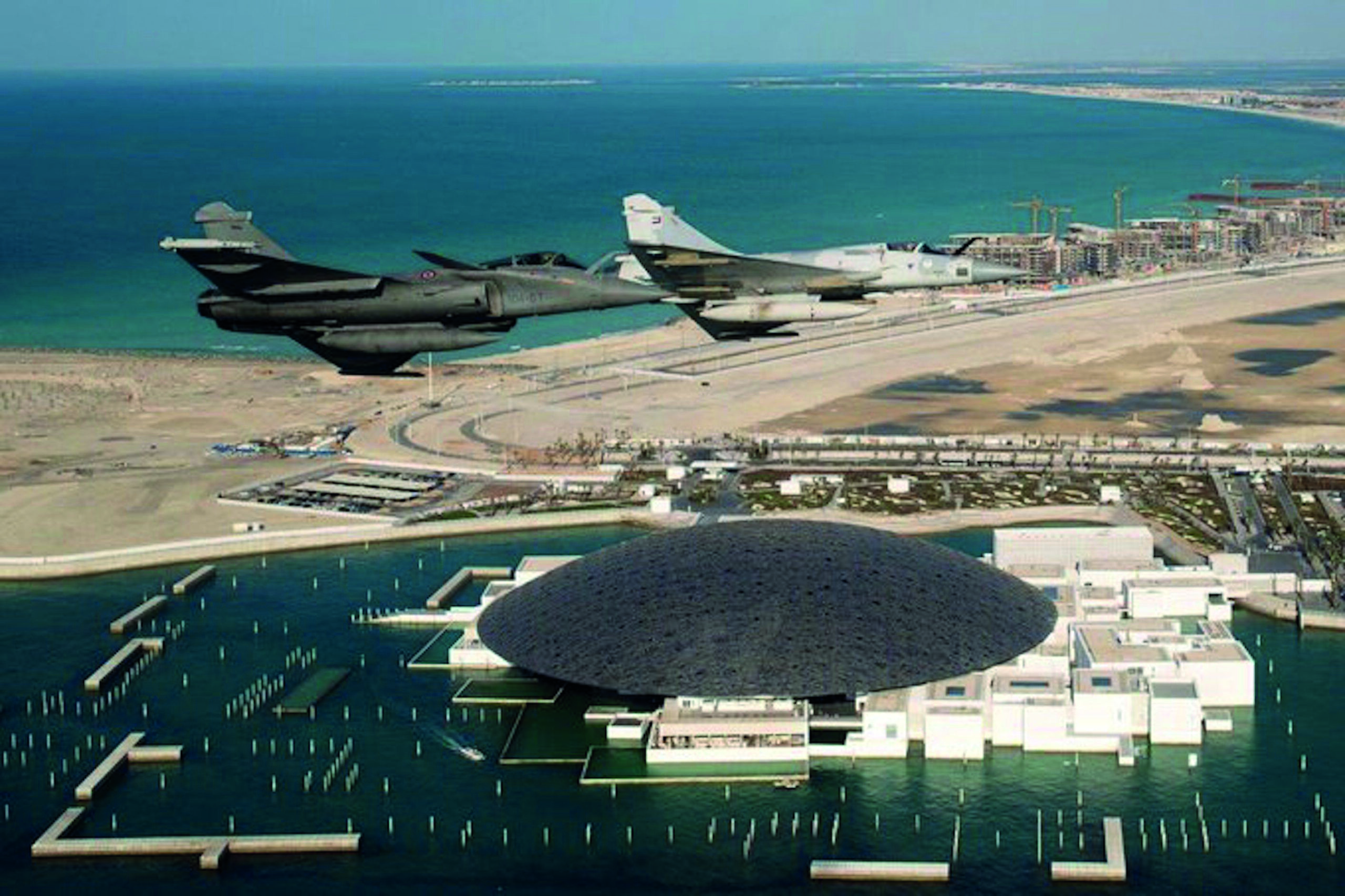As 2021 came to an end, all the signs pointed towards 2022 being another year that would offer a range of complex global security and economic challenges for Europe. The hopes that COVID-19 was finally on the verge of being conquered were dashed with the emergence of what the World Health Organisation classifies as the Omicron (B.1.1.529): SARS-CoV-2 variant.
The purpose of this article is to discuss some of these political, economic and strategic challenges and the potential consequences if these challenges are not met effectively.
Leadership Changes
Our starting point comes with the end of an era. On 8 December 2021 came the end of the 16-years of Angela Merkel as the Chancellor of Germany. History will judge the Merkel era and its consequences for Germany but there can be no doubt that Angela Merkel was a major world leader and the pre-eminent European leader as German chancellor. Now attention focuses on the new Chancellor Olaf Scholz who heads a coalition government of his own Social Democratic Party (SDP), the Greens and the Free Democratic Party (FDP). This is a peculiar coalition due to the obvious contradictions between the policy positions of the three coalition members. Contradictions of this nature generally tend to not lead to good governance.
Two days after taking power in Germany, Scholz was in Paris to meet French President Emmanuel Macron. There were common positions from both leaders on further European integration; both are committed to this. However, there are distinct differences on the subject of energy. While both subscribe to fight against man-made climate change, how they intend to achieve this is where the problem arises. European nations want to decarbonise their economies, but this cannot be achieved at the cost of energy insecurity and the strategic vulnerability that would entail.
Energy
France does use renewables, but in November Macron stated that they will decarbonise and achieve energy security by building new nuclear power plants, an area where France is already the European leader. In contrast, Germany will continue with its ‘Energiewende’ or energy transition programme. Here, the aim is to shut down nuclear power stations and eventually coal-fired stations, with the bulk of energy requirements being met by renewables. This energy transition has added to German energy costs and with energy price rising, this puts further pressure on the German economy – all of which is bad news for Europe, because Germany, as Europe’s strongest economy, has to be the motor that drags Europe out of the economic recession caused by COVID.
Of course, even though it might like to, Germany cannot meet all of its energy needs through renewables. It needs natural gas and it gets this via the NORD STREAM pipeline, the first two lines of which were openend in 2011, and which transports Russian gas to Germany and other parts of Europe. The next development was NORD STREAM 2, an additional pipeline to increase Russian gas supply. The previous US Government had sought to block NORD STREAM 2 but the current Biden administration has removed its objection to the pipeline project. However, France believes NORD STREAM 2 will compromise European energy independence, while both Poland and the Ukraine have attempted to persuade the German Government not to sanction operation of Nord Stream 2. Thus far, the German energy regulator Bundesnetzagentur (BNetzA) has not given clearance for Nord Stream 2 to begin operations, and it would appear the line will not become operational until much later in 2022. In the meantime, it is going to be a cold winter in Europe and natural gas prices are at a high level. Russia has the gas to supply and will no doubt be perfectly happy to have more leverage over Europe’s energy needs.
Leadership Questions
Dealing with the continuing COVID crisis, ongoing economic problems, energy security, climate change, and strategic threats all pose major challenges to national leaders. Obviously, there will be different priorities in different countries. What is key, though, is having national leaders who have the ability to lead. Unfortunately, this is where the West appears to have a problem. It has an ever expanding political class, sadly when you look for real political leaders the choices are somewhat underwhelming.
Whether Europe or the West in general likes it or not, the key strategic actor is and will remain the US. For the moment, the US sits at the summit of a rules-based international system and it is still a superpower in a multipolar world. Ideally, US allies would like to have some ability to participate in the US decision-making process, or at least have the ability to influence the process. This is particularly important at a time when the US is facing a serious challenge to its strategic and economic superiority from China, and a host of other strategic challenges around the world that confront its idea of how the international system should work.
What the West needs from the US is leadership and, unfortunately, the current US administration is proving sadly deficient in this regard. European elites disliked Trump and in Joe Biden they thought that they were getting a US president who was far more palatable and who shared many of their views. The problem is that Joe Biden is 79 years old. Age need not be an obstacle to a leader but clearly for Mr Biden it is an issue and it is plain that his performance is impaired through age and/or other related factors.
Having a US president who is not on top of his game needs not be a major problem. After all, Washington D.C is full of advisors, staffers and bureaucrats who keep the machinery of government running. What we are seeing out of Washington at present is a government apparatus that appears to have lots of competing power centres, but no unified strategy, with the exception of being highly responsive to domestic political considerations and the concerns of the more ideological wing of the Democratic party. All in all, this is not a recipe for a thoughtful and reasoned foreign and strategic policy that US allies can buy into.
Beyond Europe
The US withdrawal from Afghanistan and the fall of Kabul to the Taliban in August 2021 can only be seen as a strategic defeat. What was most disconcerting about the whole episode for US allies was that the US decided to cut and run from Afghanistan unilaterally with no consultation. Episodes of this nature put doubt into the minds of US allies and create a perception of uncertainty over US reliability. That, added to a US inability to understand the needs of foreign partners, contributes to situation like the United Arab Emirates (UAE) deciding to purchase 80 Dassault RAFALE F4, rather than the 50 Lockheed Martin F-35A Joint Strike Fighter (JSF) that were cleared for sale in November 2020. The UAE was not prepared to accept US-imposed operational limitations on the aircraft and had come to believe that the US Government was increasingly exhibiting bad faith as regards the JSF sale.
Fundamentally, a leadership deficit in the US is bad news for everybody else, especially since weak leaders generally make bad strategic decisions. To make matters worse, the arrival of a new German chancellor on the scene, replacing an acknowledged world leader, is also a concern. It is to be hoped that Olaf Scholz can get to grip with the international aspects of being the German chancellor in the midst of a plethora of strategic challenges. More uncertainty is to come. On 10 April, there is the first round of the French presidential election, followed by a second round between the top two remaining candidates on 24 April. Emmanuel Macron, the current president, might be irritating but he does have a strategic vision for France and for Europe as a whole. In contrast, the other potential candidates for president hardly seem calculated to fill anybody with enthusiasm. That being said, a continuing COVID crisis in France and poor economic performance makes Macron’s road to winning a second term as president more difficult.
Unconventional Threats
A strategic appreciation of the threats confronting Europe now would cover both conventional and unconventional threats both within the direct European strategic space and beyond in the Middle East, Africa and further afield. Obviously, terrorism is at the top of the list of unconventional threats. This threat continues to evolve though and there is an increasing nexus between terrorism and organised crime, particularly in terms of drug trafficking. Groups such as Hezbollah fund their activities through illegal narcotics in Latin America, the Middle East and beyond.
Drug Trafficking
The case of fentanyl can provide us with some answers. Fentanyl is an opioid and primarily used as a high strength pain medication. Illegal fentanyl in the US originates in China or Mexico. It is far stronger than heroin and is either used on its own or mixed with cocaine, heroin, ecstasy, Xanax, Oxycontin or marijuana. According to the US Center for Disease Control (CDC) in figures issued in December 2021, fentanyl is the leading cause of death for Americans between the ages of 18 and 45!
CDC figures released in November 2021 list annual drug overdose deaths in the US as amounting to 100,306 people; of these 64% were linked to fentanyl. By late 2021, US law enforcement had seized 6,804 kg of fentanyl since January according to official figures but far more had illegally entered the country. Fentanyl is increasingly becoming a factor in the European illegal drugs scene. If it causes the same level of overdose deaths in the 18-45 age group as it does in the US it will become a major strategic threat. Furthermore, trafficking such drugs to Europe will become even more lucrative for terrorist organisations.
Illegal Migration
Another area that is becoming of great concern to Europe is illegal migration. Increasingly, this is becoming used as a political/strategic threat as in the case of Belarus using the threat of uncontrolled migration into Poland and the EU as a tool to obtain political goals. Beyond state actors facilitating illegal migration, you also have criminal groups involved in illegal migration for profit and combining that with human trafficking. Terrorist groups also utilise the service of trafficking gangs to move their own people into Europe.
For many in the developing world, the lure of Europe is irresistible and if they have to pay criminal enterprises to get them to Europe they will. Countering illegal migration will require concerted action at EU and national government level, most probably requiring a logical EU migration path with strong enforcement action against illegal migration. Until this is achieved, criminal organisations will get richer and stronger via trafficking people and drugs, and will become far more dangerous and difficult to control and a growing threat to national security.
Choices
It would appear that the only thing there is these days in surplus is a crisis; whether it be a climate crisis, a crisis on the borders of the Ukraine, a crisis in the Middle East, a crisis in Africa, an economic crisis, rising energy costs, an illegal drugs crisis and, inevitably, the COVID crisis. More than that, it must be noted that there is an increasing crisis of legitimacy surrounding EU and national political elites. You can describe that as populism and condemn it, but it is a real factor. If the rulers become increasingly divorced from significant numbers of those that they claim to rule, that will do nothing for social stability, something that is already under threat from myriad causes.
There are no easy answers to the strategic and increasingly the social challenges confronting Europe. In the end it comes down to whether you wish to confront these challenges and try to resolve them, or whether you look to compromise and appease in an effort to defuse, or most likely delay the threat. Which brings us to the conclusion that the real crisis facing Europe is a crisis of leadership, and resolving that crisis is the real challenge.












